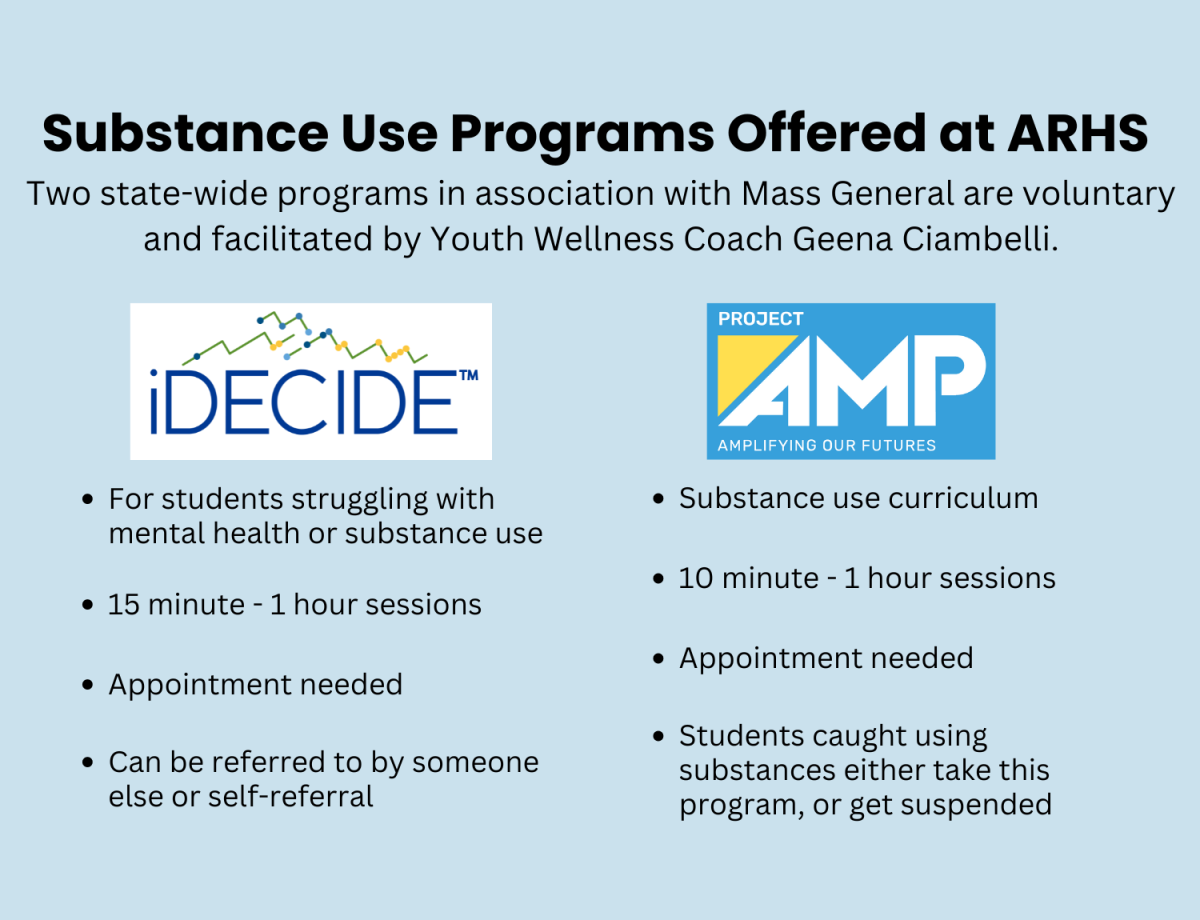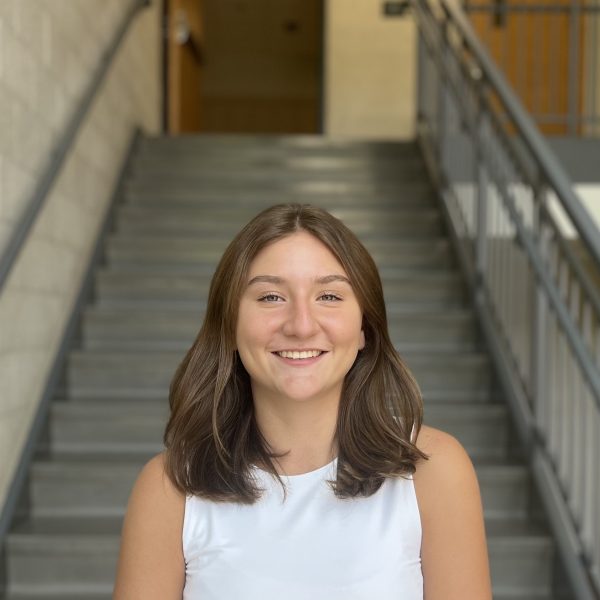Youth Wellness Coach Geena Ciambelli will now be working at Algonquin and teaching two different programs, Project AMP and iDecide, to help students that deal with substance use and mental health.
All sophomores have to take a Screening, Brief Intervention and Referral to Treatment (SBIRT) which identifies students that use alcohol or other substances. A study is being conducted by Mass General Hospital all across Massachusetts schools. For the next four years, this screening, usually done by guidance counselors and staff members, will be done by a younger person not connected with the school. The hope is that Ciambelli, who is someone closer in age and not a staff member, will be able to connect more with students and make them more comfortable to open up. Once the screening is complete, there are two programs that the students will be able to go to if they need it: Project AMP and iDecide; also taught by Ciambelli.
Social Emotional Learning Coordinator Jennifer Lipton-O’Connor, who will be overseeing this new position, wants this to be a learning opportunity for students, not something they should dread or see as punishment.
“It’s not about discipline, it’s about getting the support [students] need to make better decisions about their health,” Lipton-O’Connor said. “The idea is to help students understand the risk of substance use, as teenagers and adolescents, to help them make better decisions.”
iDecide has a set substance use curriculum designed to teach students about the dangers of using. Students who were caught with or are facing disciplinary action due to substance use will have the option to either participate in this program for several sessions or be suspended. It will occur during the day, but according to Ciambelli it’s very flexible to the students’ schedule. It can be broken down into as little as 10-minute sessions or ideally up to an hour.
“[iDecide is] really about helping kids understand how substances impact their brains, and especially what we know about adolescent brain development,” Ciambelli said.
The second program is called Project AMP. Students can enter the program by self-referral, or they can be referred by their peers or staff members. This will be a coaching program that can last for four to six sessions, from 15 minutes to an hour, with Ciambelli. Students can take this program if they are struggling with their mental health or feeling stressed; it’s not just about substance use.
“It is an opportunity for students to have a safe space to talk about whatever they are going through, and gain some coping skills,” Ciambelli said. “I am excited about Project AMP, I think it will be a great opportunity for students.”
Both of these programs are meant to help students look within themselves and come to terms with how they are feeling.
“It’s also an opportunity for students to start self-reflecting why they are doing certain things,” Ciambelli said.
As the next four years unfold, Ciambelli hopes this will become a permanent part of Algonquin.
“I hope in the future students learn more about me and the programs that are offered, and have more of a place at this school,” Ciambelli said. [I want to] be able to talk to more students, have follow-ups and build relationships.”
These new programs and the new coach will hopefully help students in multiple areas.
“[We want to] focus on building healthy and balanced learners, that big picture of student well-being,” Lipton-O’Connor said. “We hear a lot about academic excellence but we also want them to leave here having the skills they need to be healthy in general.”










